Jayme Blaschke | October 25, 2023
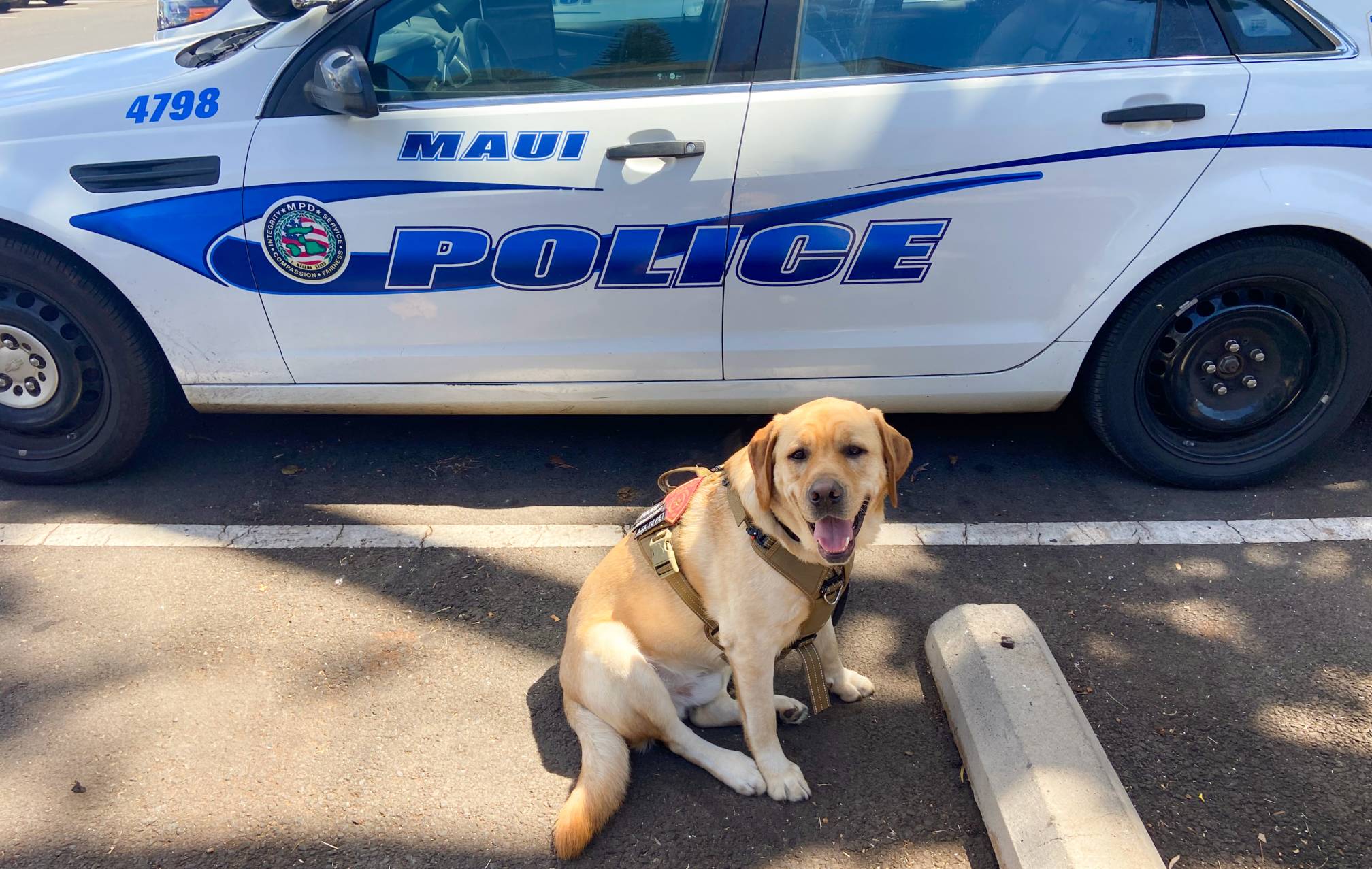
At the request of local officials in Hawaii, Officer Kendra Marsteller of the Texas State University Police Department and Texas State therapy dog Brady deployed to Maui for two weeks in late September following the unprecedented wildfire that devastated the western side of the island. What follows is Marsteller’s account of her experiences. Readers may find some of the content disturbing:
When I heard about the fire on Maui I immediately thought of the Bastrop fire from 2011 and I wondered if it was going to be as bad as that one. I was just thinking about everything that could happen if they didn’t get it controlled quickly.
I had no idea I would take Brady, the Texas State University therapy dog, to Maui just a few weeks later.
When University Police Chief Matthew Carmichael first approached me about going to Maui, all I could think about was “What about Texas State?” I was worried about my own community—what happens to the people here if I leave? But the people of Maui needed help. I said, “If they need me, we'll do it.”
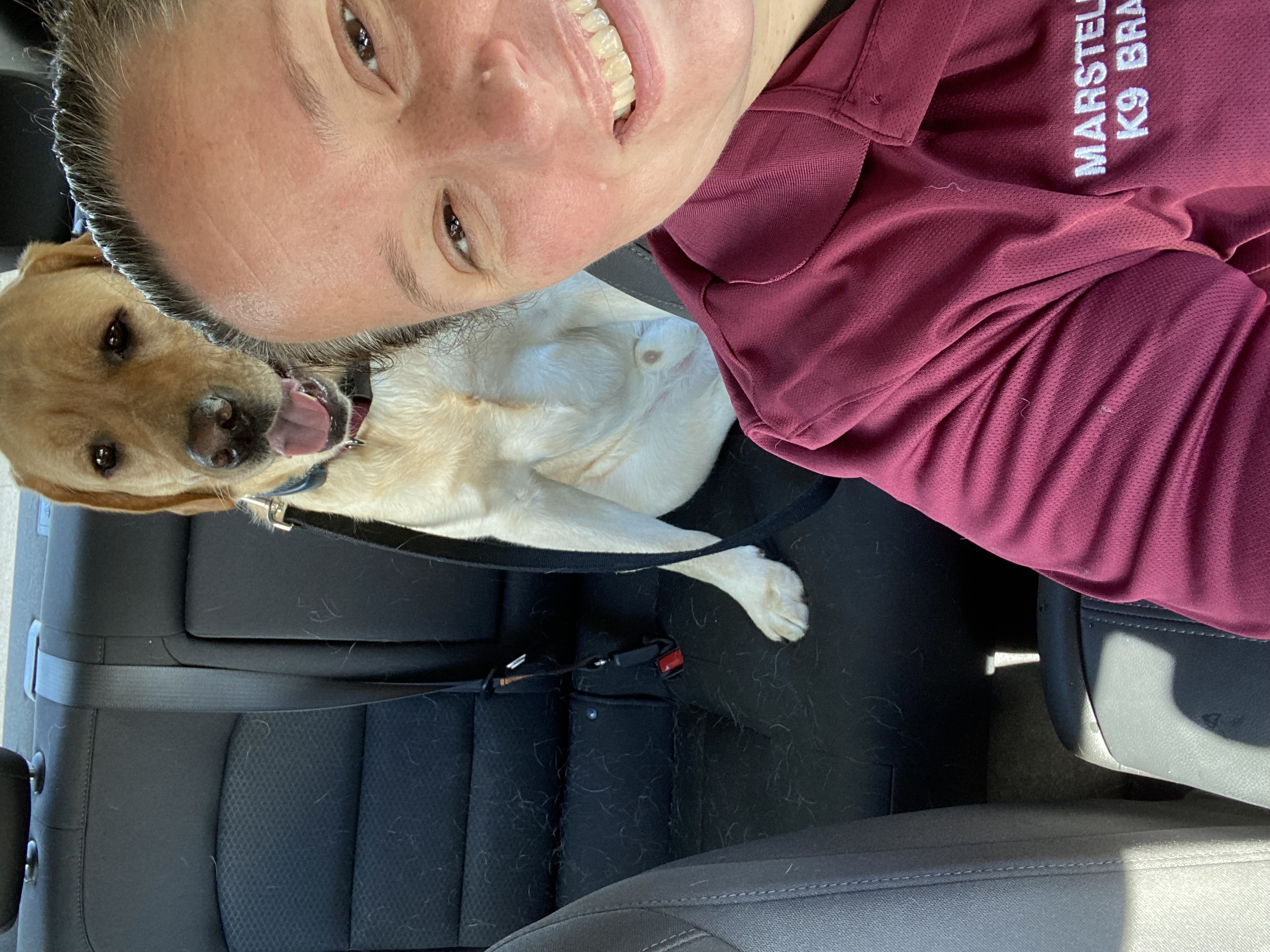
Officials in Maui were calling for help: “We need animals. We need cadaver dogs. We need therapy dogs.” There were a lot of transportation hurdles to overcome to get Brady into Hawaii—there are a lot of restrictions on animals going back and forth between the islands and mainland. Animals have to have a certain level of vaccinations otherwise they can’t have entry. There are blood tests and wellness checks, however, Hawaii waved some of those restrictions because of our mission. Once we got into Maui, I met with one of their inspectors to inspect Brady. They don't have ticks in Hawaii like we do in Texas. They wanted to make sure he was healthy. We also didn't have to go through quarantine with Brady. That just spoke to the severity of the situation.
The next day we met with the fire department and the fire chief. There's still some high emotions and some hesitation toward the volunteers coming in, and people who don't understand the community or aren't from the islands. I paired up with the Maui Police Department and traveled with them for pretty much my entire time there. We went to churches, distribution centers, the medical examiner's office, Napili Park and the hotels where the victims were staying. We met up with a public works crew. That one hit me a little hard. The crew we met with was there at the initial start of the fire. They had responded to a downed power line and fire. They had everything under control. Somehow, that fire reignited and that’s when the disaster started. I could see on their faces—all their pain and grief for their community.
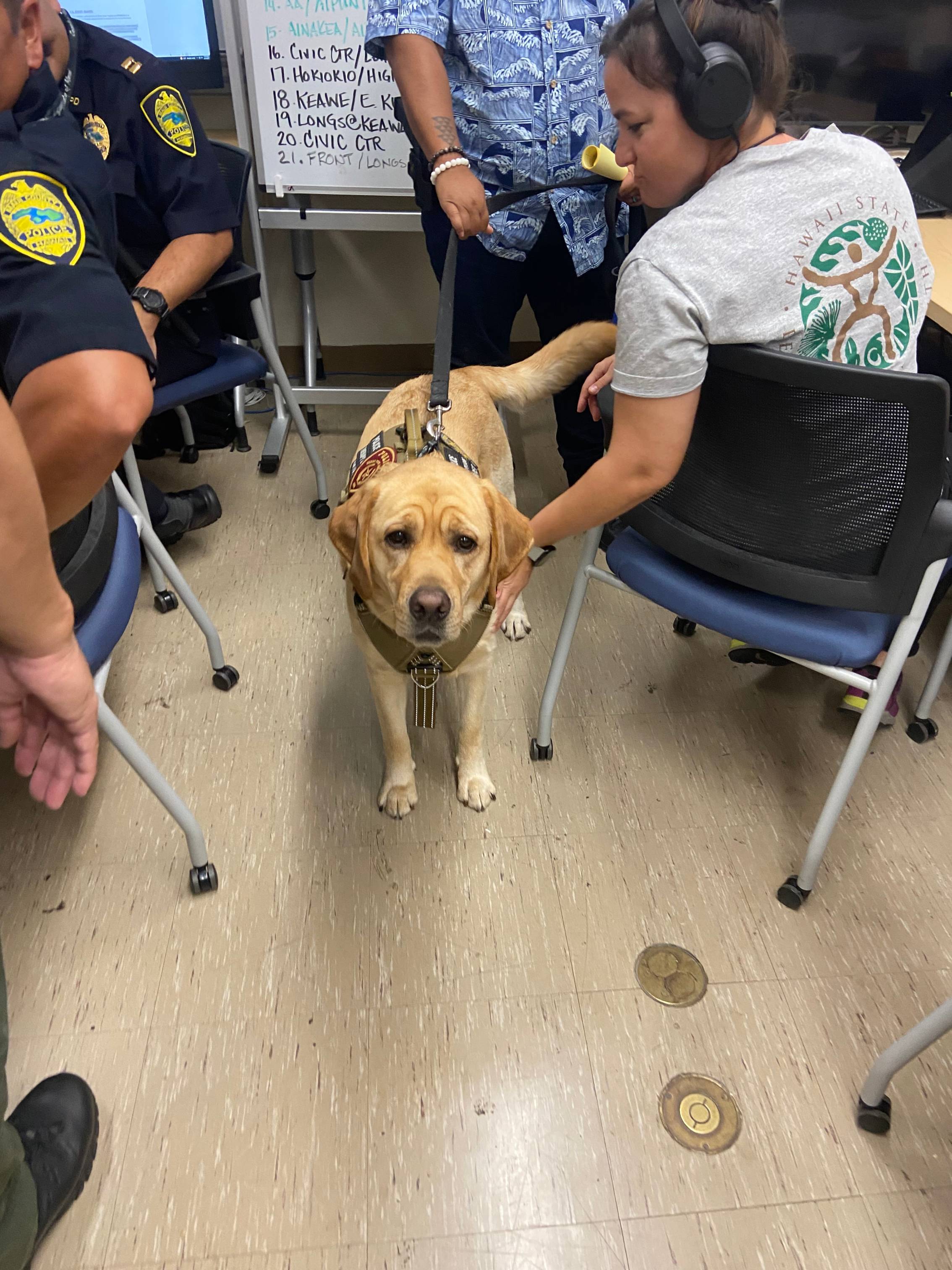
I mentioned Bastrop earlier. This was so much worse than Bastrop. There were so many stories coming out while I was there. A family had adopted a child, a little boy. He was among the missing. The family found him in the ruins of their home, in a corner, cradling his dog. They had both burned. There were so many stories like that. It was definitely rough.
Brady and I went to FEMA recovery centers and police departments. There were about 11 officers that lost their homes, including the lieutenant that Brady and I were paired up with. She was still working with me and showing me around while she was still having to deal with the devastation of losing her home. Some of their homes had been in the families for three or four generations—they had whole generations of history lost there.
We went up to the volcano in Haleakalā National Park—a couple of their rangers had assisted in the body recoveries. When Brady went up there, they sat down and started talking about their experience. They just opened up as they were petting Brady. One of the individuals there was so excited, she turned so quickly in her chair that it caught her laptop and it broke on the floor. I was like, “Oh no!” but she was just so happy to see Brady. You could just see the officers brighten.
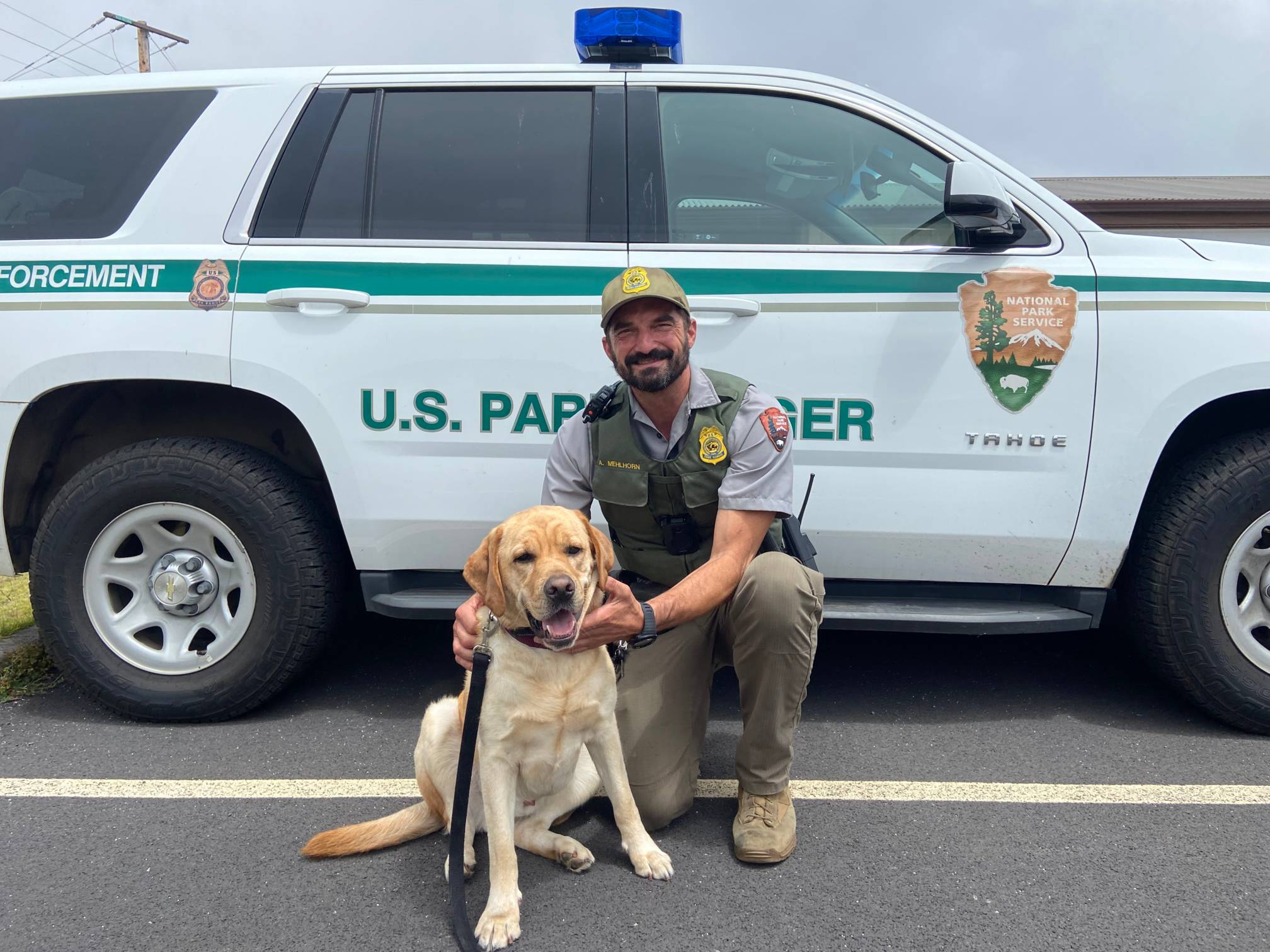
Brady went up to one officer and just sat between her legs. That's what he does. That’s his sign: “Hey, mom! Pay attention to this person because they need something.” The officer was having a rough day and Brady just sat right between her legs at her desk. Another officer just laid on the floor with Brady when we went to Napili Park. A lot of the locals were pitching tents and living in Napili, because they had no other place to go. One of the volunteers actually crawled up to Brady and sat right next to him.
We were in one of the FEMA recovery centers in Lahaina, someone asked, “Hey, do you have a therapy dog? Go to that table over there.” I'm like, okay, why are we going to this table? I didn't realize that they had a mental health awareness table set up. A gentleman was sitting there, and Brady went straight up to him and put his nose to his leg. The gentleman turned around and started crying. He said, “Oh, you're a therapy dog!” He just started patting Brady and kept talking to the other gentlemen at the table, processing his emotions and what had happened to him and his family. Brady offers trauma victims a much-needed catharsis. He gets them to open up and allows them to start a conversation. Brady senses a chemical imbalance. When we're upset or we're sick, we have an imbalance that dogs can pick up on. And that's why they get close to you. That's why they want to comfort you—because they know something's wrong. It's an unconditional love they just exude.
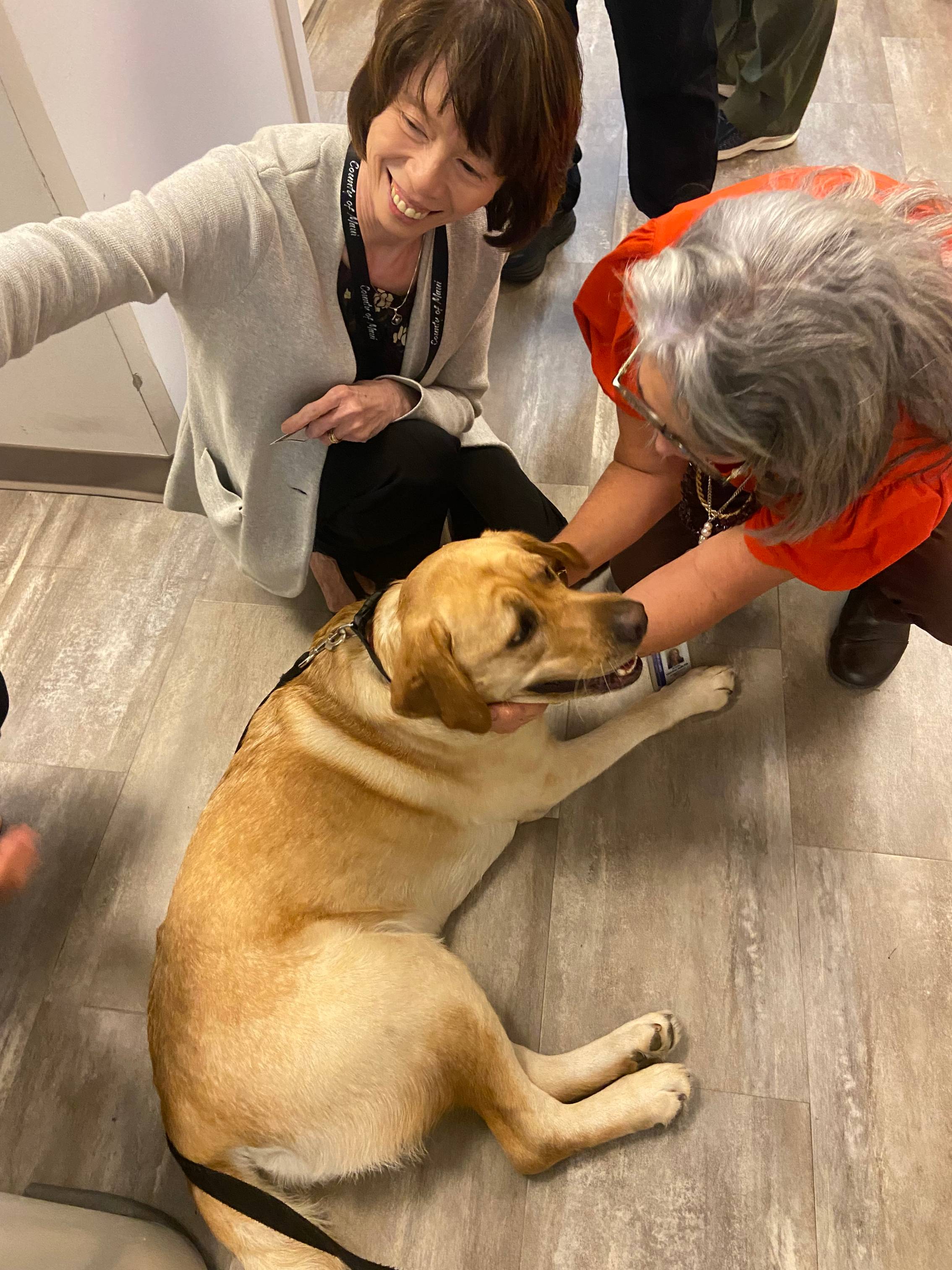
Even the mayor's office wanted Brady to visit. The public information officer for the mayor asked us to one of their briefings. She said, “Can you calm the news reporters down?” I said, “I don't know if you really want us in there, but sure. We’ll try.” There were definitely a lot of laughs and smiles with Brady. I think we were the only team that went. I didn’t see any other therapy dog teams during our visit.
When I was leaving Lahaina, I saw a memorial they’d set up. I saw the flags first. I was thinking, “I’d love to get a photo of the flags.” Then I saw all of the ribbons. They had placed ribbons on a gate for all the missing. Then the Maui officer I was with said, “The crosses are for the ones they’ve identified.” I didn’t see the crosses until they were pointed out to me. I could not do it. I could not take that photo. I wanted to respect and support the community. I had to respect the fact that they were hurting, and this was an ongoing tragedy.
Maui has since reopened. Tourists can visit Lahaina again. The locals understand that their economy is dependent on tourism, and they need that money to rebuild. But visitors don’t have to go to Lahaina. Other parts of Maui were untouched by the fire. There's Kihei and other places that they can go. They don’t need disaster tourists. They still need the local hotels for everyone who lost their homes in the fire. Where are the locals supposed to stay if tourists kick them out of the hotels?
They’re still hurt. They’re still grieving. Don’t exploit their tragedy. Respect the island and locals. Remember, they are still going through the grieving process.
If you visit, go to eastern Maui or the other islands. Let Lahaina rebuild, both physically and emotionally.
Maui strong.
Share this article
For more information, contact University Communications:Jayme Blaschke, 512-245-2555 Sandy Pantlik, 512-245-2922 |
